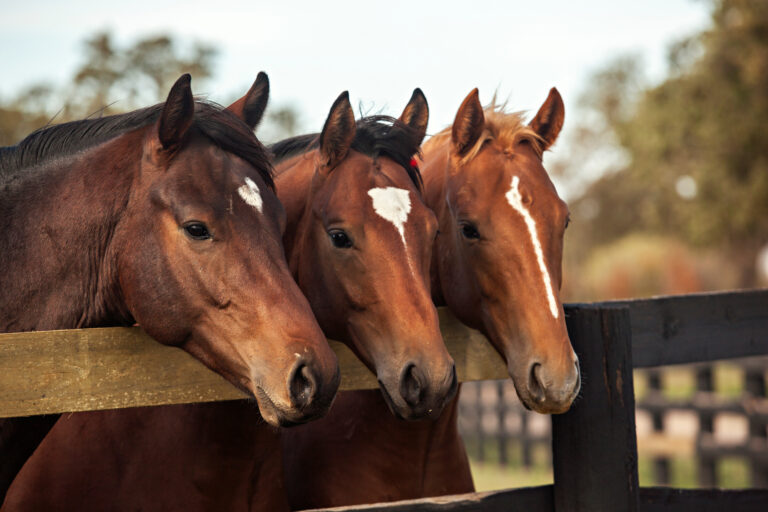
The California Department of Food and Agriculture (CDFA) made the following updates on the equine herpesvirus (EHV-1) outbreak in Orange County on March 1, 2022.
March 1, 2022: Six additional horses on this premises have been confirmed positive for EHV-1. All of these positive horses displayed fever only and no neurological signs. CDFA continues to monitor the situation.
February 28, 2022: Two additional horses on this premises have been confirmed positive for EHV-1 with five additional presumptive positive horses pending confirmation. All of these positive horses displayed fever only and no neurological signs. CDFA continues to monitor the situation.
About EHV-1
The following information is from the CDFA.
Equine herpesvirus (EHV-1) infection in horses can cause respiratory disease, abortion in mares, neonatal foal death and neurological disease. The neurological form of the disease is known as equine herpesvirus myeloencephalopathy (EHM) and may be caused by damage to blood vessels of the brain and spinal cord associated with EHV-1 infection. EHM is most often due to the neuropathogenic strain of EHV-1, but may occasionally be caused by the non-neuropathogenic strain of the virus.
EHV-1 is easily spread and typically has an incubation period between 2-10 days. Respiratory shedding of the virus generally occurs for 7-10 days, but may persist longer in infected horses. For this reason, a 21-day isolation period of confirmed positive EHM cases is recommended along with stringent biosecurity protocols. Similar to herpes viruses in other species, the latent form of EHV-1 can reactivate at a later date, but generally with a low viral load posing a low risk of infecting other horses. Humans are not at risk of contracting the virus, however humans can act as an indirect mode of transmission.
Recommendations for Participants at Equine Events
CDFA Animal Health Officials are continually monitoring for EHV-1 cases. CDFA reminds horse owners traveling with horses to participate in an equine event, that there is always disease risk when horses of unknown health status are commingled for a show or competition. CDFA strongly recommends that horse owners practice proper biosecurity when attending an equine event. Compliance with basic biosecurity practices is an important factor in reducing risk of exposure to all contagious equine diseases. Basic biosecurity measures to follow to decrease potential disease spread at equine events include:
- Limit horse-to-horse contact
- Limit horse-to-human-to-horse contact
- Avoid use of communal water sources
- Avoid sharing of equipment unless thoroughly cleaned and disinfected between uses
- Monitor your horse for clinical signs of disease and report any temperature over 102°F to a veterinarian
Defintions
- Confirmed Case: A horse that displays compatible clinical signs AND has a positive laboratory diagnostic test for the neuropathogenic strain of equine herpesvirus type 1 (EHV-1) OR any horse which displays neurologic signs AND is confirmed positive on a laboratory diagnostic test for any strain of equine herpesvirus type 1.
- Compatible Clinical Signs: Any one or more of the following clinical signs: fever, nasal discharge, ataxia, hind end weakness, diminished tail tone, and/or recumbency.
- Exposed Horse: A horse which has been in close contact with a confirmed case of the equine herpesvirus (EHV-1) within the last 14 days.








